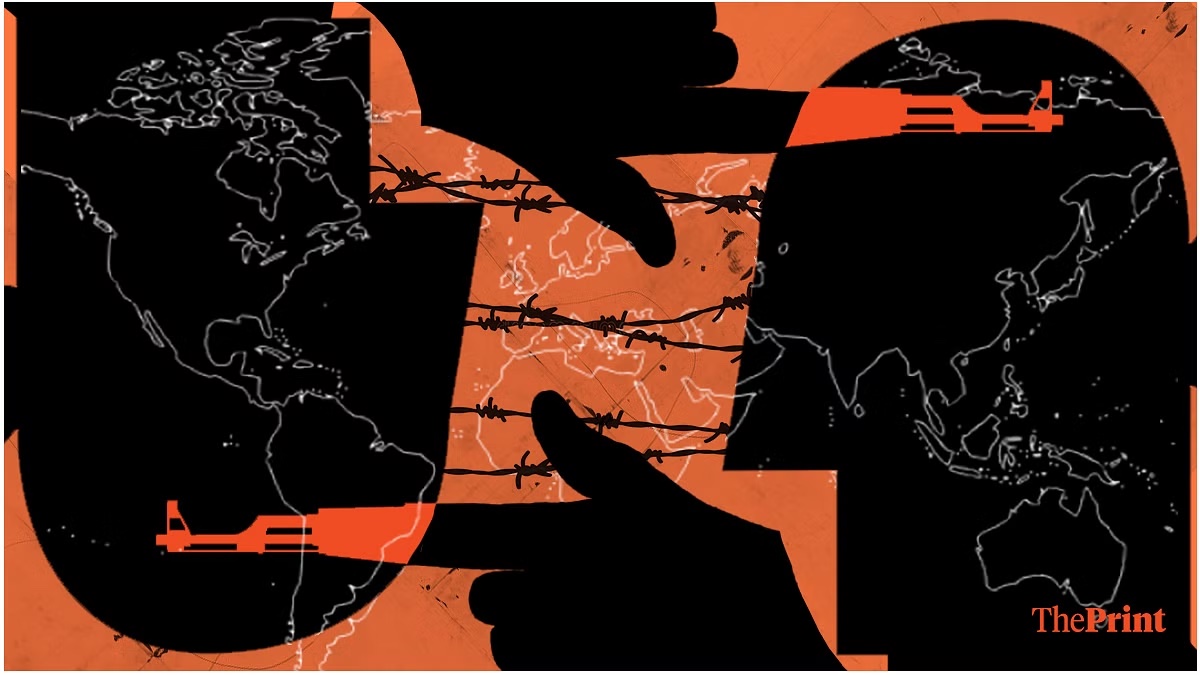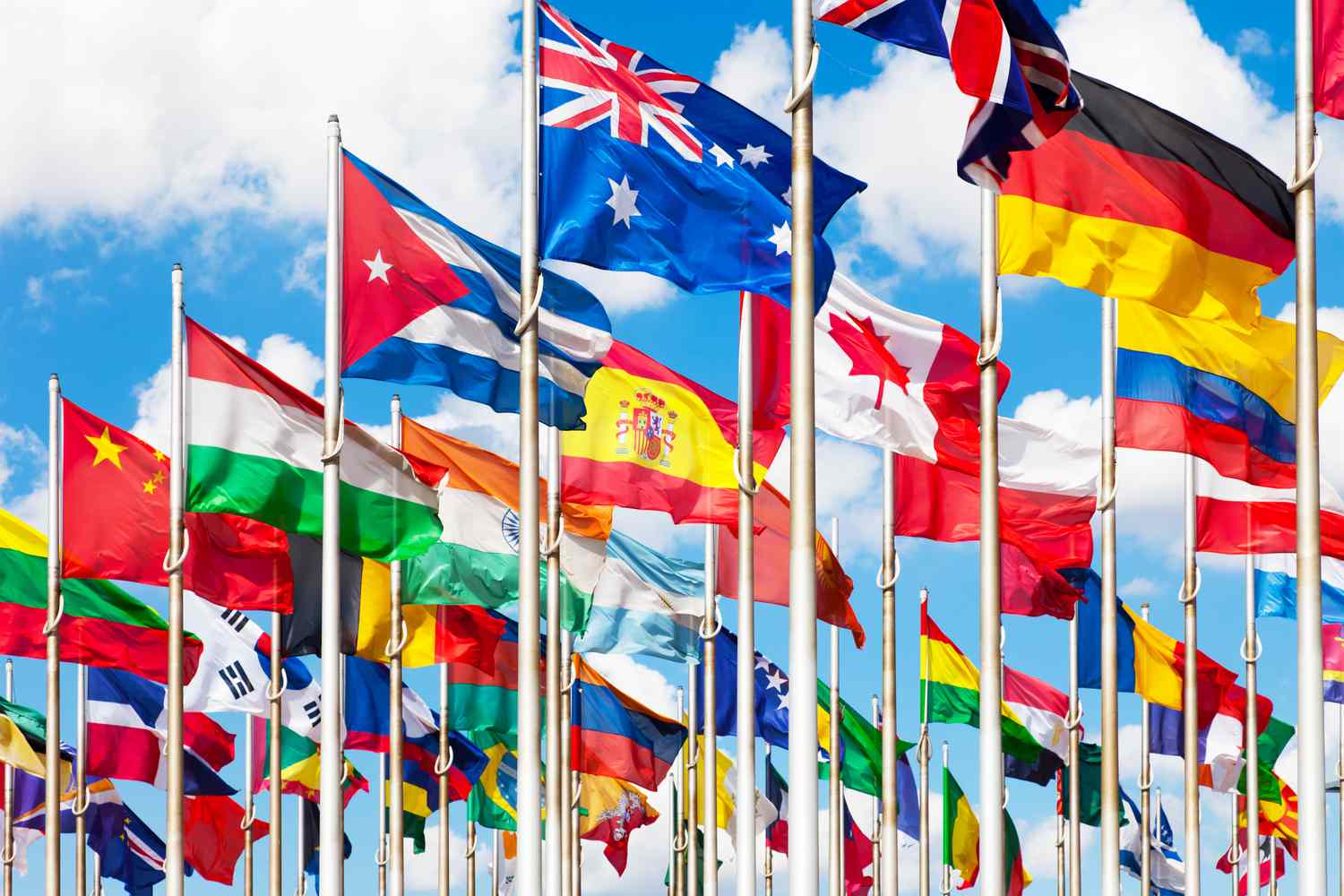Emir Hadikadunic || 17 April 2023
Why Question
 Leaders in the West may be puzzled as to why so many Muslim-majority states are reluctant to embrace their narrative about the Russian invasion of Ukraine. The fact that some of those states host US military troops, and ally — or tend to ally — with Washington makes this all the more surprising. International Relations scholars may also be puzzled over why so many Muslim nations produce any regularity-seeking nature in their foreign policy, given their domestic and international variations. Dugin and Huntington attempted to explain these issues by depicting the Muslim world as a unitary one. They generalised Islamic civilisation as a single variable or meta-force in international affairs, provoking serious and never-ending debate. Some Muslim scholars who criticised Huntington also sought to distinguish Islamic civilisation from others. For example, contributions from A. Davutoğlu “created an inter-subjective worldview that reflected an Islamic collective identity and highlighted a common interest in adopting an Islamic paradigm to ensure a better position for Muslims in world politics”. For Davutoğlu, “there is a common interest in adopting Islam as an emancipatory framework that liberates Muslim nations and individuals all over the world from the vices of Western civilisation and its dominant aspects”.[1] This article, however, neither sees religion as the central defining element, nor does it discuss the relationship between Islam and the forms of government in these countries. It instead brings to bear other underlying causes for Muslim-majority states’ pursuit of cautious neutrality in their foreign policy. By extension, the same causes explain other implications and consequences of their international affairs, or even predict their external behaviour in the future.
Leaders in the West may be puzzled as to why so many Muslim-majority states are reluctant to embrace their narrative about the Russian invasion of Ukraine. The fact that some of those states host US military troops, and ally — or tend to ally — with Washington makes this all the more surprising. International Relations scholars may also be puzzled over why so many Muslim nations produce any regularity-seeking nature in their foreign policy, given their domestic and international variations. Dugin and Huntington attempted to explain these issues by depicting the Muslim world as a unitary one. They generalised Islamic civilisation as a single variable or meta-force in international affairs, provoking serious and never-ending debate. Some Muslim scholars who criticised Huntington also sought to distinguish Islamic civilisation from others. For example, contributions from A. Davutoğlu “created an inter-subjective worldview that reflected an Islamic collective identity and highlighted a common interest in adopting an Islamic paradigm to ensure a better position for Muslims in world politics”. For Davutoğlu, “there is a common interest in adopting Islam as an emancipatory framework that liberates Muslim nations and individuals all over the world from the vices of Western civilisation and its dominant aspects”.[1] This article, however, neither sees religion as the central defining element, nor does it discuss the relationship between Islam and the forms of government in these countries. It instead brings to bear other underlying causes for Muslim-majority states’ pursuit of cautious neutrality in their foreign policy. By extension, the same causes explain other implications and consequences of their international affairs, or even predict their external behaviour in the future.
That many Muslim-majority states share more independent foreign policies could be reduced to two underlying, and inter-related, factors, one being at the level of nation-states, the other at the level of the international system. This article does not give priority to or over-emphasise the impact of either level of analysis, but focuses on their mutual interplay. At the domestic level, the great majority of Muslim-majority states view liberal ideology as a threat to their political systems. At the same time, their opposition to liberal ideology is only comparable to their preference for strong, sovereign, and authoritarian states. This generates specific “if-then” propositions that can be tested. For example, if many Muslim-majority states find liberal democracy so inhospitable to their domestic political orders, then that particular animosity will limit their support for liberal interventionist states, such as the United States. Likewise, if Muslim-majority states, Russia, and China share similar authoritarian and populist tendencies, then similar domestic preferences will make it difficult for them to oppose each other completely.
At the international level, Muslim-majority states resent the liberal international order and the threat that this order poses to their political society. Their common fear of US-led liberal interventionism, which reached its peak during the extended unipolar moment and American military interventions in Afghanistan (2002-2020) and Iraq (2002-2011), is only comparable to their preference for pluralisation and multi-polarity of the international system as its antipode. Constraining conditions generate related and testable assumptions again. For example, if Muslim-majority states, Russia, and China prefer polarisation of the international system, then similar external preferences would make it difficult for them to oppose each other. Likewise, if many Muslim-majority states find the US-led liberal international order inhospitable to their policies, then their animosity to that particular order would limit their support for the West.
More importantly, however, their shared opposition to liberal norms at the national level aligns with their shared opposition to the international liberal order. Simultaneously, their preference for strong, sovereign, and authoritarian states interacts with their preference for pluralisation of the world order. Together, they create a powerful force that exerts a good deal of influence by affecting states’ perceptions of internal and external realities. These perceptions then outline a set of constraining conditions for Muslim-majority states which prevent them from taking certain foreign policy actions, or pressuring them towards others.
Shared opposition to liberal democracy at the national level
 Foreign policy, like domestic policy, is formulated within the state, but unlike domestic policy, it is directed and implemented in the environment external to the state.[2] As a bridge between domestic and international policy, it is under the influence of both internal and external realities. In this part, the article observes specific domestic realities in Muslim-majority states. It generalises their preference for an illiberal domestic order as a building block that facilitates the convergence of their foreign policy, including international affairs. At the same time, it holds other domestic factors largely consistent, including religious norms and values.
Foreign policy, like domestic policy, is formulated within the state, but unlike domestic policy, it is directed and implemented in the environment external to the state.[2] As a bridge between domestic and international policy, it is under the influence of both internal and external realities. In this part, the article observes specific domestic realities in Muslim-majority states. It generalises their preference for an illiberal domestic order as a building block that facilitates the convergence of their foreign policy, including international affairs. At the same time, it holds other domestic factors largely consistent, including religious norms and values.
While the debate on the relationship between Islam and democracy is ongoing, with two opposing narratives, the nature of political order within the Muslim world remains unfriendly to liberal democracy, irrespective of domestic variations related to faith practices, diverse ideologies, regime characteristics, elite interests, and such. In the real world, the governments of Muslim-majority states are either non-democratic (monarchies, dictatorships, military regimes, one-party system), or have no functional democracy, by Western standards. Liberalism has not penetrated their domestic and national level yet. It has not spawned a political generation of authentic Muslim leaders who are convinced liberals. One can think of a few exceptions in our contemporary time, such as Ahmet Davutoglu, Anwar Ibrahim, or Rached Ghannouchi. However, such political figures could not subvert long-lasting tendencies. For example, in most states in the Middle East and North Africa, electoral democracy has failed to put down deep roots. Furthermore, none of the core Arabic-speaking societies falls into the category of electoral democracies. Those few Muslim countries that hold regular elections, such as Turkey, Malaysia, or Indonesia, have not reached the status of “consolidated democracy”, according to Freedom House. A similar point can be made after considering available data on “individual freedoms”. Their scores on freedoms, ranging from the right to vote to freedom of expression, are all quite low as well. Of all the Muslim-majority states that are members of the Organisation of Islamic Cooperation (OIC), none scored enough to be given the status of “free” state. The majority of them (28) are considered “not free”. The rest are “partially free”. Little faith in the principles and performance of democracy is also evident from their contemporary history. For example, the unrest against authoritarian and populist political systems in countries that were engulfed by the Arab Spring did not bring about meaningful change. Popular protests inevitably generated stronger resistance from authoritarian regimes or the political elites who benefit from such systems. In the end, almost all attempts to democratise Muslim societies failed.
Given this preference, contemporary Muslim kings, presidents, and prime ministers have built stronger partnerships with President Donald Trump, who ran against the liberal order at home and did not set much store by previous American leaders’ zeal to spread democracy around the world. Turkey’s Mr Erdogan, Saudi Arabia’s Mohammed Bin Salman, and the Emirates’ Mohamed bin Zayed, just to name a few, all preferred the isolationist, illiberal, and populist Mr Trump over liberal president Joe Biden. It is thus no surprise that President Biden has shown no affinity for the political leadership of some Muslim-majority states. During his election campaign, he vowed to treat Saudi Arabia as a “pariah” state, saying there was very little social redeeming value in the present government in Riyadh.[3] Mr Biden also described the Turkish president as an “autocrat”, and suggested that the United States should “embolden” his opponents to defeat him in this year’s elections.[4] This explains why Muslim leaders see the authoritarian rule of Russian and Chinese leaders as a proven model for themselves — they tend to be “strongmen” themselves.
 That opposition to liberal ideology has been a dominant feature of the Muslim world is not a new idea. The general failure of liberal democracy to take hold in Muslim societies, according to Huntington, has been a continuing and repeated phenomenon for an entire century, beginning in late 1800.[5] This thesis posits that there are sharp differences between the core political values common in societies sharing a Western Christian heritage — particularly those concerning representative democracy — and the beliefs common in the rest of the world, especially Islamic societies.[6] Hence, Muslim-majority states seem less likely to develop stable democratic political systems at the domestic level. Dugin also generalised Muslim-majority states in their opposition to the liberal West. For the Russian philosopher, Islamic civilisation recognises its difference from others, liberal Western civilisation in particular.[7] The line that separates the American-led unipolar order from the Muslim world (and the Russian one as well) concerns the values associated with liberal democracy. Dugin also believed that the Muslim and Russian worlds complement each other ideologically. Surprisingly or not, two intellectuals that come from two opposing societies (liberal American versus illiberal Russian) reached complementary conclusions about the Muslim world. For them, Western ideals of individualism, liberalism, human rights, the separation of church and state, and the rule of law, often have little resonance in Islamic civilisation.
That opposition to liberal ideology has been a dominant feature of the Muslim world is not a new idea. The general failure of liberal democracy to take hold in Muslim societies, according to Huntington, has been a continuing and repeated phenomenon for an entire century, beginning in late 1800.[5] This thesis posits that there are sharp differences between the core political values common in societies sharing a Western Christian heritage — particularly those concerning representative democracy — and the beliefs common in the rest of the world, especially Islamic societies.[6] Hence, Muslim-majority states seem less likely to develop stable democratic political systems at the domestic level. Dugin also generalised Muslim-majority states in their opposition to the liberal West. For the Russian philosopher, Islamic civilisation recognises its difference from others, liberal Western civilisation in particular.[7] The line that separates the American-led unipolar order from the Muslim world (and the Russian one as well) concerns the values associated with liberal democracy. Dugin also believed that the Muslim and Russian worlds complement each other ideologically. Surprisingly or not, two intellectuals that come from two opposing societies (liberal American versus illiberal Russian) reached complementary conclusions about the Muslim world. For them, Western ideals of individualism, liberalism, human rights, the separation of church and state, and the rule of law, often have little resonance in Islamic civilisation.
That this particular domestic feature of the Muslim world could have international consequences is not a new idea as well. Huntington, for example, argued that Islamic discourse determined enemies and allies for Muslim-majority states.[8] For Dugin, the domestic order of Muslim-majority states is not only compatible with the Russian order, but their common enemy is the global West and its interventionist liberal ideology.[9] He believed that all forces that struggle against liberal democracy should be included. “This means Muslims and Christians, Russians and Chinese, Leftists and Rightists, and Hindus and Jews who challenge the present state of affairs, globalisation, and American imperialism.”[10] Similar ideas appear in the popular press as well. Amr Salih writes that polarisation over the model of governance shapes reactions to many global issues, including the recent Russian invasion of Ukraine.[11] As he argued, the narrative which finds support in a populist mood claims that the strongman model (exemplified by Mr Putin) should inspire the Arab people as a path to development and influence over the global order. “That rationale was behind public support for military officers, such as President Abdel Fattah El-Sisi in Egypt, and Field Marshal Khalifa Haftar in Eastern Libya. It also animated President Kais Saied’s decision to suspend Tunisia’s democratic trajectory after sensing a domestic mood that might support — or, at least, not oppose — a return to authoritarianism. The same narrative makes constant reference to two Eastern models — those of China and Russia — as examples of strongman rule, affording significant attention to the case of Mr Putin.”[12]
Certainly, in reviewing the recent diplomatic history across the Muslim world, it would be difficult to portray their foreign policies as simply a consequence of domestic realities, ignoring the impact of external preferences. Likewise, it would be an oversimplification to argue that many Muslim leaders unify around their uneasy balance against the West just because of a single domestic variable, namely their domestic opposition to liberal democracy, or their preference for strong and authoritarian rule. But this explanation for their sceptical approach to the West is strengthened when we add inter-related external variables, namely their shared opposition to the US-led unipolar world order or their shared preference for multipolarity, to the equation. When these two merge, they create a powerful force that exerts a set of constraining conditions for Muslim-majority states.
Endnotes
[1] Shaimaa Magued, “Constructivism in the Islamic approach to International Relations: Davutoğlu and Qutb as case studies,” in Islam and International Relations, Politics and Paradigms, edited by Nassef Manabilang Adiong, Raffaele Mauriello, and Deina Abdelkader, Routledge (2019), page 128.
[2] B. White, “Analyzing Foreign Policy: Problems and Approaches,” in M. Clarke and B. White (eds.), Understanding Foreign Policy, Hants: Edward Elgar, 1989, 1-26 (5).
[3] Edward Helmore, “Saudi Arabia and UAE leaders ‘decline calls with Biden’ amid fears of oil price spike”, The Guardian, March 9, 2022, https://www.theguardian.com/us-news/2022/mar/09/saudi-arabia-and-uae-leaders-decline-calls-with-biden-amid-fears-of-oil-price-spike
[4] Bobby Ghosh, “The Real Reason Turkey Is Mad at Joe Biden,” Bloomberg, August 17, 2020, https://www.bloomberg.com/opinion/articles/2020-08-17/the-real-reason-turkey-s-erdogan-is-mad-at-joe-biden?leadSource=uverify%20wall
[5] Samuel P. Huntington, The clash of civilizations?, Penguin Books, UK, London, 1996, 114. https://books.google.com.my/books?id=Iq75qmi3Og8C&pg=PA79&dq=%22Samuel+P.+Huntington%22&source=gbs_toc_r&cad=4#v=onepage&q=%22Samuel%20P.%20Huntington%22&f=false
[6] Pippa Norris and Ronald Inglehart, “Islam & the West: Testing the Clash of Civilizations Thesis,” Faculty Research Working Papers Series, John F. Kennedy School of Government Harvard University, April 2002, page 3.
https://papers.ssrn.com/sol3/papers.cfm?abstract_id=316506
[7] Alexander Dugin, The fourth political theory, Arktos, 2012, p. 95.
https://archive.org/details/TheFourthPoliticalTheory/page/n157/mode/1up
[8] Huntington, The clash of civilizations?, 1996.
[9] Dugin, The fourth political theory, 157-58. https://archive.org/details/TheFourthPoliticalTheory/page/n157/mode/1up
[10] Ibid, p. 158.
[11] Amr Salih, “Why Does Some of the Arab Public Support Putin’s War in Ukraine?,” CARNEGIE, June 16, 2022, https://carnegieendowment.org/sada/87353
[12] Ibid.
 Dr Emir Hadikadunic is a Senior Research Fellow at the Islamic Renaissance Front. He is currently visiting professor at the University of Sarajevo School of Science and Technology, and previously served as distinguished fellow at the Universiti Teknologi MARA (Malaysia) and visiting fellow at Istanbul Commerce University (Turkey). He has also served as Bosnian Ambassador to Iran (2010-13) and Malaysia (2016-2020). Dr Hadikadunic obtained a PhD in international relations from the International University of Sarajevo, and is the author of two books and several journal articles on peace-building, foreign policy, and international affairs. This essay first appeared in the Middle East Institute Perspectives, National University of Singapore at https://mei.nus.edu.sg/publication_category/mei-perspectives/
Dr Emir Hadikadunic is a Senior Research Fellow at the Islamic Renaissance Front. He is currently visiting professor at the University of Sarajevo School of Science and Technology, and previously served as distinguished fellow at the Universiti Teknologi MARA (Malaysia) and visiting fellow at Istanbul Commerce University (Turkey). He has also served as Bosnian Ambassador to Iran (2010-13) and Malaysia (2016-2020). Dr Hadikadunic obtained a PhD in international relations from the International University of Sarajevo, and is the author of two books and several journal articles on peace-building, foreign policy, and international affairs. This essay first appeared in the Middle East Institute Perspectives, National University of Singapore at https://mei.nus.edu.sg/publication_category/mei-perspectives/

